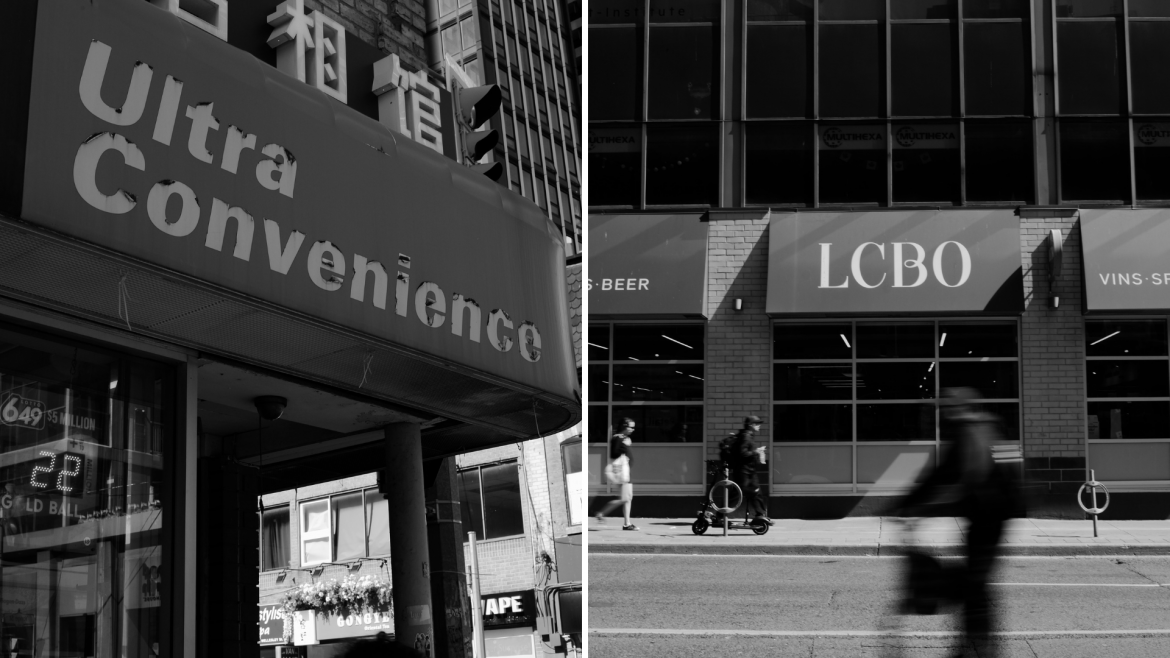Ontario’s New Alcohol Rules
Photo Credit: Aiden Fung
Ethan Chan, News Editor
As of September 5, 2024, you could walk into one of nearly 4,200 convenience stores in Ontario and pick up a bottle of wine or cider at 7 am. However, your options for alcoholic beverages are no longer limited to just wine or cider; convenience stores across Ontario can now legally sell beer, wine, cider, and ready-made-to-drink cocktails. This new reform is part of Conservative Premier Doug Ford’s 2018 pledge to increase Ontarians’ accessibility to alcohol. The Alcohol and Gaming Commission of Ontario (ACGO) has licensed over 4,200 stores, or nearly 40% of all Ontario convenience stores, with many of them proceeding with the sale of alcohol as soon as the clock strikes 7 a.m.
Initially, the sale of alcohol was restricted to the LCBO and Beer Stores since the Liquor Control Act was passed in 1927. However, as of this month, it will now extend into the uncharted territory of the convenience store, driving the province towards a notable increase in foot traffic and overall sales. This shift is taking place 16 months ahead of schedule, with low-alcohol beverages already available at some convenience stores and gas stations as of September 4. Moreover, this is only one change; grocery stores will follow suit on Halloween — October 31 — selling beer, wine, cider, and canned spirits, with only the LCBO retaining complete control over wholesale alcohol distribution until 2026.
While the expansion has clear intentions of offering greater convenience for consumers to acquire their alcohol fix, it has sparked concern among both public health experts and parents alike. Initially, health experts warn that increased access to alcohol may lead to an increase in alcohol-related health issues. According to the Ontario Human Rights Commission, nearly 5% of Ontarians report a mental health or addiction disability, which works out to roughly 728,000 people. In response, the Ontario government committed $10 million over the next five years towards social responsibility programs such as public education and addiction treatment.
Also, parents of young children who attend schools located close to government-approved convenience stores that can sell alcohol expressed concern, worrying that, by placing alcohol in environments frequented by young people, more alcohol-related issues will transpire. Many parents question whether that new “sip of convenience” is almost too convenient, with Reddit users such as Fianna9 highlighting the contradictory policies of a strict ‘no one under 19’ rule and tinted windows at pot shops but zero monitoring with booze in convenience stores.
Expanding alcohol to convenience stores will create more financial opportunities for businesses. However, online reactions are mixed, with public health officials and parents expressing concerns about the potential consequences of increasing access to alcohol to a population already struggling with a mental health crisis. As Ontario continues to push forward with this significant shift in public policy, government and health officials must closely monitor the effects of increased alcohol availability to ensure public safety remains a top priority.



